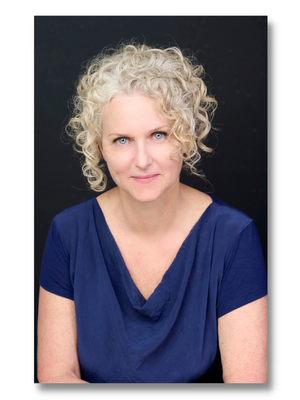
Caleb Zelic is often described as a true outsider. Do you agree with that description?
Yes. To large extent the entire series is about Caleb trying to find his place in the world. At the beginning of the first book, Resurrection Bay, he’s pretty lost. Because of his upbringing, he’s not comfortable in the Deaf or hearing worlds but caught somewhere in between. Plus, he’s made a pretty good job of pushing away his family and friends.
You’ve said that your childhood writing often featured outsider characters. Is being an outsider something you relate to?
It’s a bit of a cliche for a writer, but I sheepishly have to say yes! Some of the inspiration for Caleb’s character came from my grandparents, who were Croatian immigrants. They didn’t speak English and I wasn’t raised to speak Croatian, so when they came to live with us when I was around eight, our inability to communicate was a real shock. Or maybe more of a loss, than a shock as they were my only grandparents.
But where my experiences most line up with Caleb’s is that I’ve got ADHD, along with the auditory processing disorder (APD) that often comes with it. ADHD often conjures up ‘annoying kid who can’t concentrate’ but it’s a lot more complex than that. It can make a lot of day-to-day things challenging, as the ‘normal’ world doesn’t automatically make sense to me. But it’s also been a gift as a writer. Just as Caleb’s deafness makes him an astute investigator, my ADHD and APD makes me very observant – when you don’t instinctively understand the rules of the world, you tend to become a keen people-watcher.
You did a lot of research for Caleb’s character. Was that particularly important to you?
Absolutely. Even though Caleb was inspired by my own experiences, I’m not deaf, and writing from outside your own experience comes with a huge responsibility.
Resurrection Bay took me around five years to research and write and I’ve continued learning along the way. Apart from hiring a Deaf consultant, I spoke to a lot of D/deaf and hard-of-hearing people, learned about the nuances between being physically deaf (which Caleb is) and culturally Deaf (which he’s turned his back on). I did an online lipreading course and tried out my lipreading skills in the world…and failed miserably. There are people in the world who can lipread videos but I’ll never be one of them! I missed buses and received the wrong food in cafes, couldn’t understand anyone with a beard, accent or lip-fillers.
Learning Australian sign language (Auslan) was one of the most important and rewarding parts of the journey. Because Caleb is so determined to live in the hearing world, I originally wasn’t sure if he’d use sign language, but I knew a few minutes into my first Auslan lesson that he had to. Where lipreading is exhausting and difficult, sign language is natural and expressive – the perfect way to show Caleb’s softer side. So he lipreads most of the time but signs with the people he loves.
How do you go about building a series while ensuring that each title can also be read as a standalone novel?
I think of it a little like designing a building. Each book in the series is a self-contained room. You can walk straight in and enjoy just that space, or start at the front door and explore the entire building. My job is to make all of it architecturally cohesive but still interesting, whether it’s for a first time visitor, or an old acquaintance.
To keep the story flowing I give readers the information they need by threading it through the first few chapters. The tricky part is to do it in a way that’s meaningful. I often pin a memory to an object or place. I might link Caleb’s past marital woes to the kind of tea his wife drinks, or show his childhood closeness with his brother by describing a game of dare they used to play in a neighbour’s garden.
I did make things a little hard for myself, because I wanted to avoid the cliche of an investigator who lurches from case to case, book to book, incapable of change, so Caleb’s evolved a lot over the series. I’m always rapt when readers tell me that they jumped in at book 2 or 3 and understood him immediately.
One last question – how do you pronounce your surname?
Vis – kich (It was originally spelt Viskić. One day I’ll tell the story about that missing accent…)
More interviews below
Video
THOSE WHO PERISH Book launch Q & A
20 Questions with Leaf Bookshop
Better Reading, Those Who Perish
Podcasts
Living Arts Canberra
Better Reading
Burgers Beers Books
